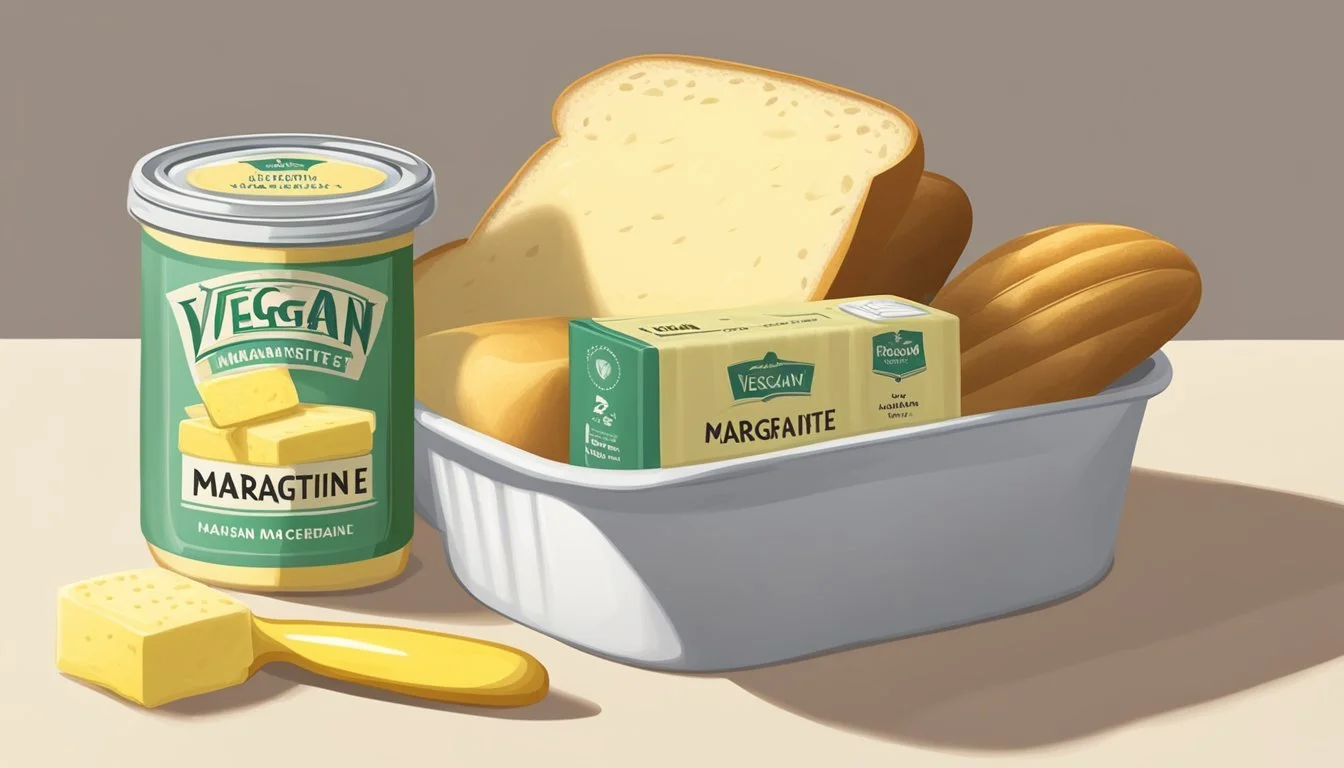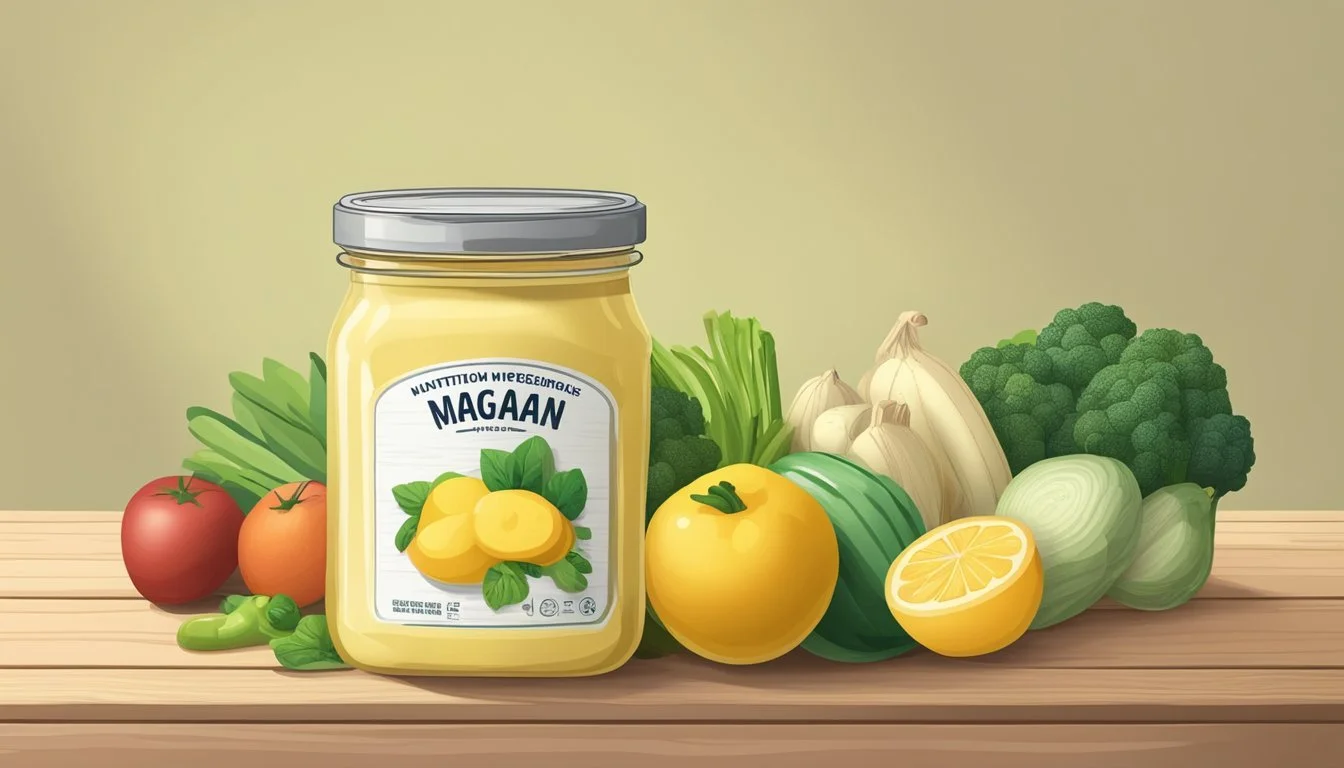Is Margarine Vegan?
Unveiling Its Plant-Based Status
Margarine has long been popular as a substitute for butter, offering a different flavor profile and, in some formulations, health benefits. Traditionally made from vegetable oils, water, and emulsifiers, margarine is often perceived as a dairy-free alternative to butter, which is crafted from animal milk. This characteristic makes margarine a point of interest for those following a vegan diet, as vegans avoid all animal products, including dairy, due to ethical, environmental, or health reasons.
However, not all margarine is created equal when it comes to being suitable for a vegan diet. Generally, many types of margarine are indeed dairy-free and vegan because they are made from plant-based oils like soybean, canola, or sunflower. These spreads do not contain dairy or animal fats, aligning them with vegan dietary restrictions. Nonetheless, consumers should be aware that some margarine products may include small amounts of dairy-derived ingredients, such as whey or lactose, for flavor and consistency, thus disqualifying them as vegan.
For vegans seeking to include margarine in their diets, it is essential to read labels and opt for products that are explicitly marketed as vegan. Brands often offer vegan-friendly margarine, formulated to mimic the taste and texture of butter without any animal-based ingredients, ensuring that the spread can be enjoyed without compromising one's dietary choices. These spreads ensure that individuals adhering to a vegan lifestyle can still enjoy the richness of a butter-like product in their cooking and at the dining table.
Understanding Margarine
Margarine has evolved considerably since its inception, with variations in composition, manufacturing processes, and health implications. This section will examine the substance in detail.
Composition and Types
Margarine is primarily made from vegetable oils, such as soybean, corn, or palm oil, which are emulsified with water to create a spreadable product. The fat content in margarine can vary, with some types containing more unsaturated fats, which are considered healthier, and less saturated fats. Traditional margarine formulations may include hydrogenated vegetable oil, a process which increases shelf stability but can create unhealthy trans fats. However, many manufacturers now seek to minimize or eliminate trans fats due to health concerns.
Common margarine components:
Vegetable oil: The main ingredient providing the fat content.
Water: Used to emulsify the oil and create a spreadable consistency.
Emulsifiers: Help to mix oil and water.
Salt: Added for flavor.
Optional ingredients such as plant-based milk, flavors, and colorants.
History and Manufacturing
Margarine was originally created in the 1800s as a more affordable butter substitute. Its manufacturing involves the process of hydrogenation, which solidifies vegetable oil by converting unsaturated fats into saturated fats. Today, manufacturing processes have adapted to consumers' health concerns, with many brands offering trans fat-free or low saturated fat options.
Key historical points:
Invented by Hippolyte Mèges-Mouriès in France in 1869 as a butter alternative.
Initial formulas used animal fats; later switched to more available vegetable oils.
Health Considerations
The health impact of margarine consumption largely depends on the types and amounts of fats it contains. Margarine high in unsaturated fats and low in trans fats is often considered a healthier choice compared to those high in saturated fats or containing trans fats. Consumers should review nutrition labels to make informed choices about the margarine products they purchase.
Factors affecting health:
The presence and levels of saturated and unsaturated fats.
The absence or minimal levels of trans fats.
When selecting a margarine product, it is important for individuals to consider both the nutritional content, such as fat types and ratios, and any dietary preferences or restrictions they may have.
Defining Veganism
Veganism is more than a diet; it's a lifestyle choice that excludes all animal products and by-products. Individuals who identify as vegan commit to avoiding meat, dairy, eggs, honey, and any other substances derived from animals. They seek out plant-based ingredients and products for their nutritional, ethical, and environmental benefits.
The vegan diet is an essential aspect of this lifestyle. It focuses on consuming fruits, vegetables, legumes, grains, nuts, and seeds, while steering clear of all animal-derived foods. Plant-based typically refers to a diet that emphasizes foods derived from plants, but it doesn't always exclude animal products entirely. In contrast, veganism is strict about this exclusion.
A person following a vegan diet relies on a variety of plant-based sources for their nutritional needs. Proteins can be sourced from foods like beans, lentils, tofu, and tempeh, while essential fats come from avocados, nuts, and seeds.
Here's a succinct breakdown:
Vegan Diet Composition Examples Proteins Beans, lentils, tofu, chickpeas Fats Avocados, nuts, seeds, olive oil Carbohydrates Fruits, vegetables, whole grains Vitamins & Minerals Leafy greens, fortified plant milks
A vegan individual also extends their beliefs to other areas of life, avoiding leather, fur, silk, and cosmetics or soaps derived from animal products. Instead, they opt for cruelty-free, synthetic, or plant-based alternatives. Through these choices, vegans aim to reduce the harm and exploitation of all animals.
Is Margarine Vegan?
Margarine is traditionally known as a plant-based butter substitute, and while many varieties cater to a vegan diet, not all margarine products are free from animal-derived ingredients.
Common Non-Vegan Ingredients in Margarine
Some margarines contain ingredients that are not suitable for a vegan lifestyle. The following are non-vegan components that can be found in certain margarine products:
Dairy derivatives: These may include milk solids, whey, lactose, or casein.
Animal Fats: Less common, but some brands might use animal fats for flavor or texture.
It's important for consumers to read labels carefully to ensure the product aligns with vegan dietary preferences.
Vegan-Friendly Margarine Options
Products labeled as vegan margarine exclude all animal fats and derivatives, making them suitable for vegans. Many brands have recognized the demand for vegan products and offer margarine that typically involves the following ingredients:
Vegetable Oils: Commonly soybean, canola, or olive oil.
Emulsifiers: Plant-based alternatives to traditional emulsifiers.
Below is a list of indicators that a margarine is vegan-friendly:
Explicit "vegan" labeling
Absence of dairy-related terms in the ingredients list
Use of plant-based oils and emulsifiers
Consumers looking for vegan margarine should prioritize products with clear vegan labeling and verify the ingredients to avoid any non-vegan additives.
Alternatives to Margarine
For those seeking vegan alternatives to traditional margarine, the market offers a variety of plant-based options that are free from animal-derived ingredients. These alternatives cater to different dietary needs and preferences while providing similar textures and flavors for cooking and baking.
Plant-Based Butter Substitutes
Plant-based butter substitutes are crafted to mimic the taste and functionality of butter without using any animal products. They typically utilize a base of soy, coconut, palm, or avocado oils. Some popular brands produce vegan butter formulations that ensure no animal exploitation and maintain a commitment to health consciousness. It's important to note that consumers should check labels for palm oil sources to ensure sustainability and ethical practices.
Oil-Based Spreads
Oil-based spreads offer a versatile and often healthier alternative to both margarine and butter. These spreads are usually made from a blend of oils such as olive oil, soybean oil, and coconut oil. The use of olive oil is particularly prized for its heart-healthy monounsaturated fats, while coconut oil offers a rich, creamy texture that can be favorable in many baking recipes.
Olive oil spread: Ideal for spreading on bread or drizzling over vegetables.
Coconut oil spread: Can be used as a butter replacement in baking or as a flavorful addition to oatmeal and smoothies.
Nut and Seed Spreads
Nut and seed butters are nutritious alternatives that bring a new flavor profile to the table. Options like almond butter, cashew butter, and sunflower seed butter are rich in protein and beneficial fats. These spreads are entirely plant-based and are often preferred by those seeking whole-food options.
Almond butter: High in vitamin E and magnesium, almond butter is a robust choice for spreads and baking.
Coconut butter: Made from pureed coconut flesh, it combines the benefits of coconut oil with additional fiber.
The variety of vegan spreads available provides ample choice for those looking to replace margarine without compromising on taste or texture. Each alternative offers distinct health benefits and culinary uses, catering to a wide range of dietary preferences and needs.
Health and Nutritional Profile
When considering the health and nutritional profile of margarine, it's crucial to examine the types of fats present and the additional vitamins and nutrients they may contain. The impact of these components on health can influence an individual's dietary choices, particularly in relation to heart health.
The Impact of Fats on Health
Margarine's fatty acid composition has shifted over the years with a significant reduction in trans fats, which are linked to an increased risk of heart disease. The focus has been on incorporating more unsaturated fats, such as polyunsaturated and omega-3 fatty acids, which are considered more beneficial for heart health. Conversely, saturated fats, typically found in higher amounts in butter, are present in lower quantities in margarine. These fats can influence cholesterol levels, so one should consider the balance between unsaturated and saturated fats to manage the risk of heart disease.
Vitamins and Supplementary Nutrients
Modern margarines are often fortified with additional nutrients. For example, Vitamin D is commonly added due to its benefits for bone health and immune function. Furthermore, some margarines are enriched with omega-3 fatty acids, which are associated with a reduced risk of heart disease and have anti-inflammatory properties. They may also contain other vitamins and polyunsaturated fats, which are essential fats the body needs for brain function and cell growth.
Culinary Uses of Margarine
Margarine is a versatile ingredient commonly used in both baking and cooking. Its high fat content ensures it can create the tender crumb desired in baked goods such as cakes and cookies. Chefs often use it in pie crusts to achieve flakiness comparable to that made with butter.
In cooking, margarine serves as an efficient medium for frying and sautéing, imparting a flavor and moistness to a variety of dishes. The spreadability of margarine is particularly appreciated when used on bread, as it typically softens at room temperature, making it easy to achieve an even layer.
Taste and Texture:
A range of flavors, from slightly salty to sweet, is available to suit different taste preferences.
It can mimic the creaminess of butter, although the exact texture may vary between brands.
Baking and Cooking:
Act as a leavening agent helping to create a desirable rise in doughs and batters.
Can contribute to browning and caramelization in baked goods for added depth of flavor.
Table of Use in Breads:
Type of Bread Role of Margarine Sandwich Loaf Provides a soft texture and preserves freshness Dinner Rolls Yields a tender crumb and enhances taste Toast Offers a crisp surface and rich flavor when grilled
Cooking enthusiasts should always read labels closely. Not all margarines are created equal; some may include dairy derivatives like whey or lactose, affecting flavor, texture, and vegan status. However, there are plenty of vegan options available that do not compromise on the quality of the culinary end product.
Environmental and Ethical Considerations
When considering whether margarine is vegan, one must carefully examine its environmental and ethical implications, particularly in relation to its ingredients and production processes.
Palm Oil and Deforestation
Palm oil is a common ingredient in many margarines. Its production, however, is a leading cause of deforestation, especially in tropical regions where rainforests are cleared to make way for palm plantations. This deforestation harms biodiversity, contributes to greenhouse gas emissions, and can displace indigenous communities. Vegan-friendly options are those that either avoid palm oil altogether or source it from suppliers certified for sustainable practices.
Ethical Brands and Certifications
For consumers seeking ethical margarine options, identifying brands that hold certifications can be beneficial. Certifications like non-GMO and fair trade can indicate a brand's commitment to ethical standards. Margarines that use plant oils should ideally ensure that they do not indirectly support practices that are harmful to animals or the environment. This includes avoiding marine oils or other animal products and opting for brands that promote sustainable agriculture and responsible sourcing.
Shopping for Vegan Margarine
When selecting a vegan margarine, consumers should pay particular attention to product labels and familiarize themselves with trusted brands that guarantee vegan-friendly options.
Reading Labels
A key step in finding vegan margarine is scrutinizing the ingredient list. Buyers should look for terms such as "plant-based" or "dairy-free" and confirm that the product doesn't contain non-vegan ingredients like whey, casein, lactose, or other milk derivatives. Instead, the list should primarily feature oils from plants like soy, palm, canola, or olive.
Trusted Vegan Margarine Brands
Several brands have a reputation for producing reliable vegan margarines. Earth Balance offers a wide range of vegan buttery spreads and sticks. Smart Balance also has vegan options, but shoppers should check the labels as not all products are dairy-free. I Can't Believe It's Not Butter now includes plant-based versions, ensuring vegan suitability. While Blue Bonnet's traditional spreads are not vegan, they do provide "Lactose-Free" variants; again, label scrutiny is vital to ensure these are free from other animal products.
Making Your Own Vegan Margarine
Creating homemade vegan margarine is a practical way to ensure that your spread is plant-based and free from animal products. By selecting high-quality oils and following specific recipes, one can produce delicious and vegan-friendly margarine at home.
DIY Margarine Recipes
To make vegan margarine, the process involves emulsifying oils with a liquid until a spreadable consistency is achieved. An example recipe could start with blending soy milk at room temperature with a tablespoon of apple cider vinegar or lemon juice and a pinch of salt for flavor. The acidity helps to thicken the soy milk, creating a base for the margarine.
Next, while blending these ingredients, one slowly adds a mixture of vegetable oils such as sunflower oil, olive oil, or canola oil—in a steady, thin stream to avoid separating. Lecithin, often derived from soy, can be incorporated as an emulsifier to improve texture and spreadability. For additional flavor and health benefits, nutritional yeast or turmeric can be added. The margarine should be chilled until solidified before use.
Choosing the Right Oils
The choice of oils is crucial for the taste and consistency of homemade vegan margarine.
Sunflower oil is light and has a neutral flavor, making it a good base.
Canola oil is another neutral choice that's rich in omega-3 fatty acids.
For richness, a bit of olive oil can be included, but its strong taste means it should be used sparingly.
Soybean oil is a common ingredient in commercial margarines for its smooth texture.
Ensuring that the oils are non-GMO and organically sourced can appeal to health-conscious consumers. Moreover, the right balance of saturated to unsaturated fats will affect the consistency; too much polyunsaturated fat and the margarine may be too soft, while more saturated fat, such as coconut oil, may be used to firm up the final product.
Conclusion
Margarine, traditionally made from vegetable oils, often presents itself as a dairy-free alternative to butter. Due to its plant-based origins, one might assume that all margarine varieties are suitable for vegans. However, this is not universally accurate. Some margarine brands incorporate ingredients of animal origin, such as whey or lactose, which are not compatible with a vegan diet.
Those seeking vegan options should scrutinize labels to identify products that specifically confirm their vegan status. Legitimate vegan margarine is free from dairy and other animal derivatives. Vegan butter alternatives, typically based on oils from sources like olive, almond, and avocado, provide vegan-friendly choices.
In terms of health, the consumption of margarine versus butter has been a topic of consideration, especially pertinent to concerns such as heart disease and obesity. Margarine's composition has evolved, with many brands now offering non-hydrogenated versions that contain healthier fats. These formulations aim to reduce trans fats, known contributors to adverse health problems.
The selection of a vegan margarine can thus offer a dairy-free spread while also potentially offering health benefits. Consumers are advised to look for non-hydrogenated spreads with no added animal products when choosing a health-conscious, vegan-compliant margarine.








